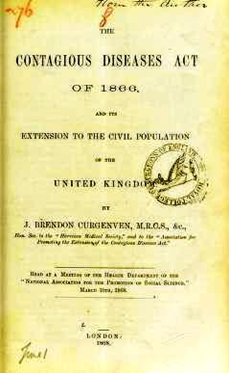Sex and Military: Soldiers, Prostitution, Venereal Diseases in the Great War
DOI:
https://doi.org/10.15170/PAAA.2018.05.02.04Keywords:
medical history, infectious disease, venereal disease, prostitution, prophylaxis, World War IAbstract
Since ever, it was a serious problem of military leaderships to manage the soldiers’ sexual demands and practice, generally speaking, their relationship with women and as a consequence to treat the sexually transmitted infectious diseases. It was a serious problem especially in prolonged campaigns. In all kind of warfare, there is a close tripartite interrelation of sex, prostitution and venereal diseases among the military personnel. Nevertheless managing them as a complex issue shows a wide range of varieties in specific historic periods.
The military way of thinking and policy do definitely not resemble the circumstances, expectations and paradigms of the usual civil life-style. Military tasks and law enforcement are more rigorous than the civil ones for the tasks to be achieved are commended, typically in a relentless way and controlled continuously.
Stages of development, movements, steps and commandments presented here indicate clearly the eternity of this topic and a wide range of solutions, depending on the actual historic era of sciences, politics, and behavioural patterns.
The Great War induced substantial changes in the military way of thinking. In the wake of spreading sexually transmitted diseases, there were established field brothels by the military supply system with painstaking regulations. The present study shows the history of these facilities.
Downloads
References
Attwood, Nina: The Prostitute’s body. Rewriting Prostitution in Victorian Britain. London, 2010.
Baldwin, Peter: Contagion and the State in Europe 1830–1930. Cambridge, 1999. || [DOI] https://doi.org/10.1017/CBO9780511497544
Balla Tibor: Érosz a hadszíntéren, avagy a nagy háború osztrák–magyar tábori és tartalék bordélyai. Hadtörténelmi Közlemények 123. (2010):4. 1023–1030.
Barranov, David: The Abolition of Slavery in Brazil: The „Liberation” of Africans. Through the Emancipation of Capital. Westport, London, 2000.
Biddulph, Robert: Lord Cardwell at the War Office, History of his Administration, 1868–1874. (Classic reprint). [London], 2017.
Bíró Béla: A prostitúció. Budapest, 1933.
Brian, M. Allen: The effects of infectious diseases on Napoleon’s Russian Campaign. Alabama, 1998. || [DOI] https://doi.org/10.21236/ADA398046
Brian, Joseph Martin: Napoleonic Friendship. Military Fraternity, Intimacy and Sexuality in nineteenth-century France. New Hampshire, 2011.
Candido, Conde-Pumido Tourón: „Lei Áurea”. Encyclopedia of emancipation and abolition in the Transatlantic world. London, 2007.
„Contagious Diseases Act.” Spartacus education. Archived from the original on 16 January 2013. Retrieved 1 February 2013. London, 1868.
Contagious Diseases Act 1891. The Lancet (1891):7. 330–332. || [DOI] https://doi.org/10.1016/S0140-6736(02)18234-1
Corbin, Alain: Women for Hire: Prostitution and Sexuality in France After 1850. Cambridge, London, 1990.
Coward, David: Philosophy of Restif de la Bretonne. Oxford, 1991. (Studies on Voltaire and the eighteenth century)
Davidson, Robert – Hall, Lesley A.: Sex, Sin and Suffering: Venereal Disease and European Society since 1780. London, New York, 2001.
Doros Gábor – Melly József: Nemibetegségek kérdése Budapesten. I. Budapest, 1930.
Durand, N. J. – Nicolas, J. – Favre, M.: Lymphogranulomatose inguinale subaiguë d’origine génitale probable, peut-être vénéri-enne. Bulletin de la Société des Médecins des Hôpitaux de Paris 3. (1913):35. 274–288.
Edmonds, J. E. – Davies, H. R. – Maxwell-Hyslop, R. G. B.: Military Operations France and Belgium: 1918 March–April: Continuation of the German Offensives. History of the Great War Based on Official Documents by Direction of the Historical Section of the Committee of Imperial Defence. II. London, 1995.
Erős Ferenc: Kínzás vagy gyógyítás? Pszichiátria és pszichoanalízis az első világháborúban. Kaleidoscope 5. (2014):8. 35–58. || [DOI] https://doi.org/10.17107/KH.2014.8.33-58
Fisher, Trevor: Prostitution and the Victorians. Stroud, 2001.
Forrai Judit: A prostitúció reformterve a francia forradalom idején. Orvosi Hetilap131. (1990):12. 641–643.
Forrai Judit: Kávéházak és kéjnők. Budapesti Negyed 4. (1996):2–3. (12–13.) 110–120.
Forrai, Judit: History of Different Therapeutics of Venereal Diseases before the Discovery of Penicillin. In: Syphilis. Recognition, Description and Diagnosis. Ed. Neuza, Satomi Sato. 2011. 37–58. || [DOI] https://doi.org/10.5772/24205
Forrai Judit: Prostitúcióról szóló diskurzus a századfordulón multidiszciplináris megközelítésben. Kaleidoscope 7. (2016):13. || [DOI] https://doi.org/10.17107/KH.2016.13.305-327
Frey József: A prostitúció történetéből, különös tekintettel a hadseregekre. Teleia (1924):11–12. 102–107.
Gibson, Mary: Prostitution and the State in Italy, 1860–1915. Columbus, 1999.
Grayzel, Susan R.: Women’s Identities at War: Gender, Motherhood and Politics in Britain and France during the First World War. Chapel Hill, 1999.
Guszman József: Venereás betegségek. Orvosi Hetilap 59.(1915):10–13. (11) 149–150.
Hahn Dezső: A fertőző nemi betegségek és a háború. Huszadik század (1916):2. 1–19.
Hirschfeld, Magnus: The sexual history of the World War. New York, 1941.
Holms, John: The British Army in 1875, with Suggestions on Its Administration and Organisation. [s.l.] 2010.
Jeannel, Julien François: Die Prostitute in der Städten im neunzehnten Jahrhundert und die Vernichtung der venerischen Krankheiten. Erlangen, Enke, 1869.
Jegyzőkönyv. A Szegedi Kereskedelmi és Iparkamarának 1917. április hó 20-án tartott teljes üléséről. (http://misc.bibl.u-szeged.hu/21091/1/szkik_1917_001.pdf) [2018.09.11.]
Linzbauer Xaver Ferenc: Codex Sanitario-Medicinalis Hungariae. VII. Budae, Typ. Universitatis, 1861.
Majláth József: A betegmegfigyelő állomásokról. Orvosi Hetilap 59. (1915):32. 431–435.
Majláth József: A megfigyelő állomások szerepe közegészségügyi szempontból a háború alatt és a háború végével. Orvosi Hetilap 60. (1916):7. 87–88.
Masson, Frédéric: Napoleon and the Fair Sex, 1847–1923. HardPress Publishing, (2013.)
Marschalkó Tamás: Háború és venereás bántalmak. Az Erdélyi Muzeum-Egylet orvos-természettudományi szakosztályának ápr. 17-i szakülésen tartott előadás. Orvosi Hetilap 59. (1915):26. 347–350.
Mercier, Louis-Sébastien: Le Tableau de Paris,I–II. Oxford, 2007.
Nékám Lajos: A syphilisnek kihatása a világtörténelemre. Orvosi Hetilap 74. (1930):38. 973–978.
Rock, Alex: ‘The ‘khaki fever’ moral panic. Women’s patrols and the policing of cinemas in London, 1913–19’. Early Popular Visual Culture 12. (2014):1. 57–72. || [DOI] https://doi.org/10.1080/17460654.2013.876923 || [WoS] https://www.webofscience.com/wos/woscc/full-record/WOS:000337189200004
Rodriguez, Junius P.: Encyclopedia of emancipation and abolition in the Transatlantic world. London, 2007.
Schmindt Béla: Adatok a katonák venereás megbetegedéséhez. (Közlemény egy honvédgyaloghadosztály mozgó tábori gyengélkedő-házából.) Budapest, 1916. (Különny. a Budapesti Orvosi Ujság tudományos közleményeiből)
Szántó Jenő: A nemi betegségek elleni küzdelem a harcztéren. Orvosi Hetilap 60. (1916):16. 201–203.
Tarnowsky, Pauline: Étude anthropométrique sur les prosti-tuées ét les voleuses 1881. Bulletins de la Société d’anthropologie de Paris Année 3. (1892):1. 95–104. || [DOI] https://doi.org/10.3406/bmsap.1892.3964
Töpply, Robert: War, prostitution and venereal disease in Germany. The Lancet 188. (1916):4856. || [DOI] https://doi.org/10.1016/S0140-6736(01)27650-8
Veress Ferenc: Nemibeteg katonák gyógyítása a harcztéren. Közlés a cs. és kir. 11/5 mozgó tartalékkórházból. Orvosi Hetilap 60. (1916):8. 93–96.
Walkowitz, Judith: Prostitution and Victorian Society: Women, Class, and the State. Cambridge, 1980. || [DOI] https://doi.org/10.1017/CBO9780511583605
Wijland, van Jerome: Mémoires de l’Académie de Médecine. Academie Nationale de Medicine Janvier (2009):11. 1–34.
Wollacott, Angela: ‚Khaki Fever’ and its Control: Gender, Class, Age and Sexual Morality on the British Homefront in the First World War. Journal of Contenporary History 29. (1994):2. 325–347. || [DOI] https://doi.org/10.1177/002200949402900206

Downloads
Published
How to Cite
Issue
Section
License

This work is licensed under a Creative Commons Attribution-NonCommercial-NoDerivatives 4.0 International License.










